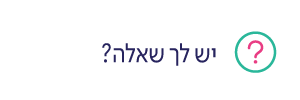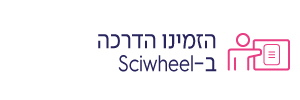Google vs G Scholar vs PubMed vs Web of Science
|
|
|
Google Scholar |
PubMed |
Web of Science |
|---|---|---|---|---|
|
Scope |
Broadest |
Biology, life sciences and environmental sciences, business, administration, finance and economics, chemistry and materials science, engineering, pharmacology, veterinary science, social sciences, arts and humanities |
Specific: Bio-Medicine |
Science, technology, social sciences, arts and humanities |
|
Content scope |
Searches billions of indexed web sites; Includes all sorts of websites: government, organizations, commercial, individual sites, news |
Indexes a wide range of scholarly (academic) literature including articles, dissertations, documents, reports, theses, court opinions, and abstracts, conference papers, court opinions, book chapters. From: academic publishers, professional societies, online repositories, universities and other web sites |
Indexes ~5400 peer-reviewed journals |
Acceptable content is determined by an evaluation and selection process based on the following criteria: impact, influence, timeliness, peer review, and geographic representation
SCIE- Science Citation Index Expanded ~9200 journals |
|
Selection |
None |
Content is selected by Google Scholar staff, who have been secretive about the sources included. Some publishers refuse to let Google Scholar search their web content. |
Human curated: PubMed is controlled by human experts who systematically select data for inclusion in the database, and then describe and organize it. Organized and maintained by experts |
Human curated: |
|
Source Languages |
|
all |
English abstract |
English (plus 45 other languages |
|
Search Engine |
Searches: every word seen on every webpage is indexed; Plain language works fine |
Advanced search |
Controlled vocabulary |
|
|
Filters and limits |
|
Limited filters |
Ability to focus with subject; Sort by article type; Different Filters |
Different Filters |
|
Ranking |
Algorithm ranks relevance for you |
Algorithm ranks relevance for you |
Ability to sort results by date and relevance |
|
|
Full text access |
Free or open access |
Can set up library access links |
Can set up library access links |
|
|
Quality |
Hard to determine the credibility of sources- Must evaluate each source for yourself |
|
Easy to identify peer reviewed articles. Need to learn how to use |
Need to learn how to use |
|
Citing articles |
|
Shows number of citations |
Citing articles from the indexed articles |
|
|
How to search |
Phrases with quotation marks. Possible to combine terms with OR or (not). |
Phrases with quotation marks. Possible to combine terms with OR or (not). |
Phrases with quotation marks. Possible to combine terms with AND, OR, & NOT Clinical Queries; Journal database |
|
|
Display result |
|
|
Possible to sort results by author, publication date, Including date, or journal. Possible to show full abstract |
|
|
Features |
|
|
Register with 'My NCBI' to save searches, set up alerts & customize filters |
|
Search for systematic reviews:
PubMed Clinical Queries narrow search had the highest-quality, most relevant, and most readable hits. Google Scholar performed well, in some cases retrieving citations that other search engines did not. PubMed and Google Web were not as efficient.








